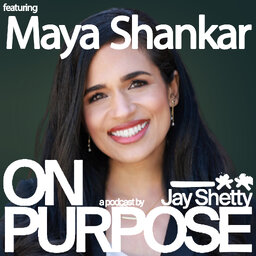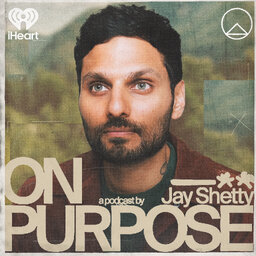3 Dates Every Couple Needs to Go On & 3 Conversations You Shouldn't Avoid
Today, I will be sharing a snippet from my book, 8 Rules of Love, that talks about the three dates that truly matter in any relationship including finding common interest and have fun together, learning what your partner values and respecting their choices, and being open about future plans.
If you want to pre-order the book, 8 Rules of Love, go to https://8rulesoflove.com/
Key Takeaways:
- 00:00 Intro
- 00:03:01 The 3-Date rule
- 00:04:19 Having healthy and unhealthy disagreements
- 00:08:18 Personality
- 00:13:14 First Date: Have fun together
- 00:18:31 Second Date: Respect their values
- 00:25:44 Third Date: Share some ideas of the future
Like this show? Please leave us a review here - even one sentence helps! Post a screenshot of you listening on Instagram & tag us so we can thank you personally!
Want to be a Jay Shetty Certified Life Coach? Get the Digital Guide and Workbook from Jay Shetty
https://jayshettypurpose.com/fb-getting-started-as-a-life-coach-podcast/
In 1 playlist(s)
On Purpose with Jay Shetty
My name is Jay Shetty, and my purpose is to make wisdom go viral. I’m fortunate to have fascinating …Social links
Follow podcast
Recent clips

Dr. Maya Shankar: Does Change Make You Feel Lost Or Uncertain? (Use THIS Framework To Find Direction Again and Use Change to Upgrade Your Life!)
48:02

Dating Expert Sabrina Zohar: You’re Not Confused, You’re Ignoring the Signs (THIS Mindset Shift Will End the “What If” Loop for Good)
1:29:10

The REAL Reason You Feel Behind (It’s Not What You Think!) Use THIS Simple Reset to Make Confident Decisions
21:57
 On Purpose with Jay Shetty
On Purpose with Jay Shetty